White Album 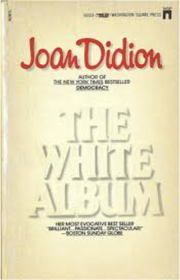 PLAY IT AS IT LAYS 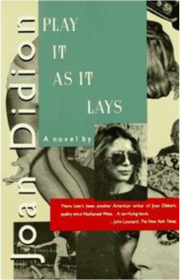 After Henry 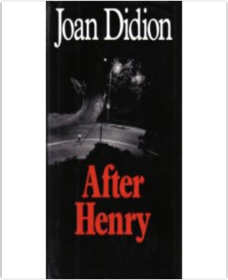 Blue Nights 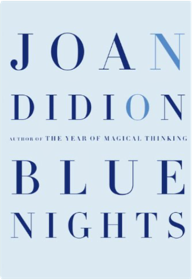 Blue Nights opens on July 26, 2010, as Didion thinks back to Quintana’s wedding in New York seven years before. Today would be her wedding anniversary. This fact triggers vivid snapshots of Quintana’s childhood—in Malibu, in Brentwood, at school in Holmby Hills. Reflecting on her daughter but also on her role as a parent, Didion asks the candid questions any parent might about how she feels she failed either because cues were not taken or perhaps displaced. “How could I have missed what was clearly there to be seen?” Finally, perhaps we all remain unknown to each other. Seamlessly woven in are incidents Didion sees as underscoring her own age, something she finds hard to acknowledge, much less accept. Blue Nights—the long, light evening hours that signal the summer solstice, “the opposite of the dying of the brightness, but also its warning”—like The Year of Magical Thinking before it, is an iconic book of incisive and electric honesty, haunting and profoundly moving. Democracy 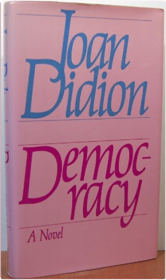 Fixed Ideas: America Since 9.11  "[Americans] recognized even then [immediately after 9/11], with flames still visible in lower Manhattan, that the words 'bipartisanship' and 'national unity' had come to mean acquiescence to the administration's preexisting agenda —for example the imperative for further tax cuts, the necessity for Arctic drilling, the systematic elimination of regulatory and union protections, even the funding for the missile shield." Frank Rich in his preface notes: "The reassuring point of the fixed ideas was to suppress other ideas that might prompt questions or fears about either the logic or hidden political agendas of those conducting what CNN branded as 'America's New War.'" He adds, "This White House is famously secretive and on-message, but its skills go beyond that. It knows the power of narrative, especially a single narrative with clear-cut heroes and evildoers, and it knows how to drown out any distracting subplots before they undermine the main story." Book and cover design by Milton Glaser, Inc. Joan Didion: Memoirs & Later Writings 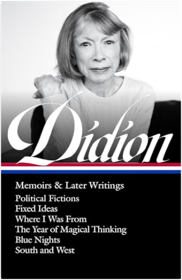 Joan Didion: The 1960s & 70s 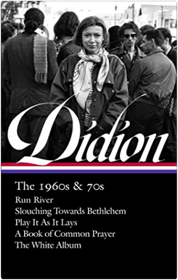 Joan Didion: The 1980s & 90s 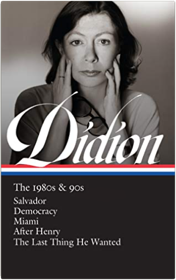 Miami 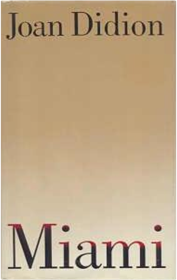 As Didion follows Miami's drift into a Third World capital, she also locates its position in the secret history of the Cold War, from the Bay of Pigs to the Reagan doctrine and from the Kennedy assassination to the Watergate break-in. Miami is not just a portrait of a city, but a masterly study of immigration and exile, passion, hypocrisy, and political violence. From the Trade Paperback edition. Notes to John 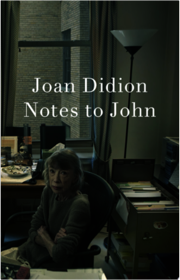 Salvador 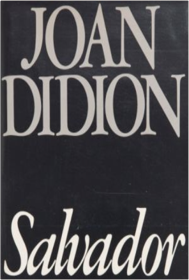 Slouching Towards Bethlehem 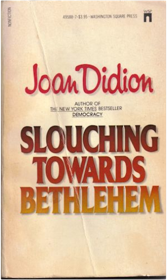 Contents: I. LIFE STYLES IN THE GOLDEN LAND Some Dreamers of the Golden Dream John Wayne: A Love Song Where the Kissing Never Stops Comrade Laski, C.P.U.S.A. (M.-L.) 7000 Romaine, Los Angeles 38 California Dreaming Marrying Absurd Slouching Towards Bethlehem II. PERSONALS On Keeping a Notebook On Self-Respect I Can't Get That Monster out of My Mind On Morality On Going Home III. SEVEN PLACES OF THE MIND Notes from a Native Daughter Letter from Paradise, 21° 19' N., 157° 52' W Rock of Ages The Seacoast of Despair Guaymas, Sonora Los Angeles Notebook Goodbye to All That South and West: From a Notebook 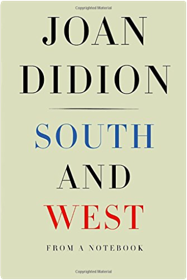 Joan Didion has always kept notebooks: of overheard dialogue, observations, interviews, drafts of essays and articles—and here is one such draft that traces a road trip she took with her husband, John Gregory Dunne, in June 1970, through Louisiana, Mississippi, and Alabama. She interviews prominent local figures, describes motels, diners, a deserted reptile farm, a visit with Walker Percy, a ladies' brunch at the Mississippi Broadcasters' Convention. She writes about the stifling heat, the almost viscous pace of life, the sulfurous light, and the preoccupation with race, class, and heritage she finds in the small towns they pass through. And from a different notebook: the "California Notes" that began as an assignment from Rolling Stone on the Patty Hearst trial of 1976. Though Didion never wrote the piece, watching the trial and being in San Francisco triggered thoughts about the city, its social hierarchy, the Hearsts, and her own upbringing in Sacramento. Here, too, is the beginning of her thinking about the West, its landscape, the western women who were heroic for her, and her own lineage, all of which would appear later in her acclaimed 2003 book, Where I Was From. One of TIME’s most anticipated books of 2017 One of The New York Times Book Review's “What You’ll Be Reading in 2017” We Tell Ourselves Stories in Order to Live: Collected Nonfiction (Everyman's Library) 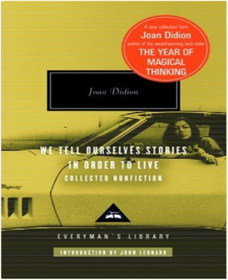 The Year of Magical Thinking 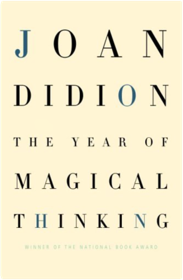 Several days before Christmas 2003, John Gregory Dunne and Joan Didion saw their only daughter, Quintana, fall ill with what seemed at first flu, then pneumonia, then complete septic shock. She was put into an induced coma and placed on life support. Days later–the night before New Year’s Eve–the Dunnes were just sitting down to dinner after visiting the hospital when John Gregory Dunne suffered a massive and fatal coronary. In a second, this close, symbiotic partnership of forty years was over. Four weeks later, their daughter pulled through. Two months after that, arriving at LAX, she collapsed and underwent six hours of brain surgery at UCLA Medical Center to relieve a massive hematoma. This powerful book is Didion’s attempt to make sense of the “weeks and then months that cut loose any fixed idea I ever had about death, about illness . . . about marriage and children and memory . . . about the shallowness of sanity, about life itself.” Political Fictions 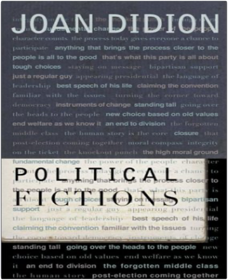 Where I Was From 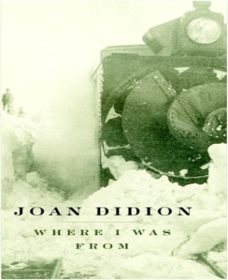 |


Delicious Library
Collection Total:
3,640 Items
3,640 Items
Last Updated:
Nov 2, 2025
Nov 2, 2025

 Made with Delicious Library
Made with Delicious Library